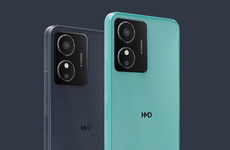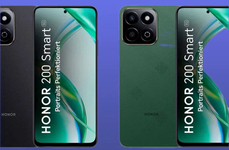
The Nokia Lumia 350 is the Cheapest Windows Phone Ever Made
Rahul Kalvapalle — July 25, 2014 — Tech
References: conversations.nokia & gizmag
The Nokia Lumia 530 is the cheapest Windows Phone device to ever hit the market. This budget-friendly smartphone offers a 1.2 GHz quad-core Qualcomm Snapdragon 200 processor and a 4-inch display with an 854 x 480 resolution.
The Lumia 530 offers a modest 512 MB of RAM and 4 GB of internal storage, which can be supplemented by up to 128 GB of additional storage via the microSD slot. The phone runs on the Windows Phone 8.1 operating system, giving users access to Cortana, Microsoft's alternative to Google Now and Apple's Siri.
The phone will be available in both single and dual SIM version, and will retail for only $114 before taxes. It is expected to be rolled out in August, but Nokia hasn't revealed which regions will get the phone first.
The Lumia 530 offers a modest 512 MB of RAM and 4 GB of internal storage, which can be supplemented by up to 128 GB of additional storage via the microSD slot. The phone runs on the Windows Phone 8.1 operating system, giving users access to Cortana, Microsoft's alternative to Google Now and Apple's Siri.
The phone will be available in both single and dual SIM version, and will retail for only $114 before taxes. It is expected to be rolled out in August, but Nokia hasn't revealed which regions will get the phone first.
Trend Themes
1. Affordable Smartphones - Companies can capitalize on the opportunity to create budget-friendly smartphones to attract low-income customers.
2. Increased Storage Capacity - Developing smartphones with high internal storage or expandable memory can attract users who consume a lot of media on their devices.
3. Virtual Assistants - Incorporating virtual assistants such as Cortana can give users a more personalized and efficient experience with their devices.
Industry Implications
1. Mobile Devices - Companies in the mobile device industry can create budget-friendly smartphones to appeal to customers with low income.
2. Technology - Technology companies can improve smartphone storage capacity to meet the growing demand for media consumption.
3. Artificial Intelligence - Incorporating virtual assistants such as Cortana can improve the functionality and appeal of various industries such as healthcare, education, and banking.
2.8
Score
Popularity
Activity
Freshness























